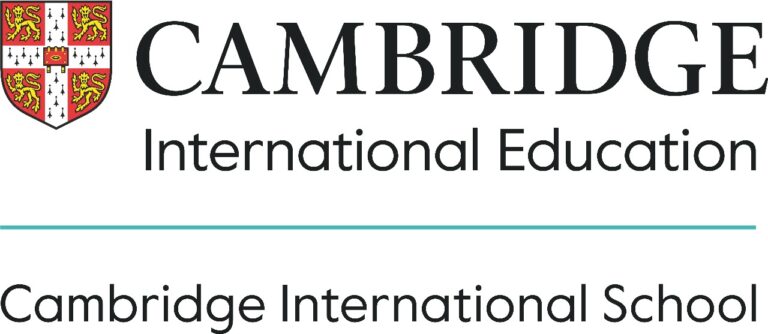![]()
As we enter 2025, the right curriculum for a student’s overall long-term success and global opportunities will be crucial. With the increasing demands for international-standard education, the question of IGCSE vs ICSE has risen, the difference between IGCSE, International General Certificate of Secondary Education, and ICSE, Indian Certificate of Secondary Education, should be understood to guide parents in making suitable and informed decisions concerning their child’s future aspirations both curriculums have its very own benefits and drawbacks.
IGCSE vs ICSE: Understanding the Basics
Let’s get the brief about IGCSE vs ICSE:
CSE Indian Certificate of Secondary Education: The curriculum for ICSE is regulated by the Council for the Indian School Certificate Examinations, established in 1958. It is a nongovernmental board of education that provides an entire educational structure for all-round development. The ICSE syllabus aims at fostering complete comprehension and critical thinking in a wide array of subjects in languages, sciences, and humanities.
It is centered on literacy in the English language and provides practical applications for the assimilation of knowledge so that students are adequately prepared for both academic and real-life challenges. The curriculum, above all, fosters integrated learning, challenging students to relate it to other areas of study while developing cognitive, emotional, and social skills.
IGCSE: This is an internationally recognized qualification provided by Cambridge Assessment International Education. Since its beginning, this syllabus follows the UK pattern of education and is for students aged 14 to 16. It is skill-based learning with international recognition so that students are further prepared to take A-Levels or International Baccalaureate.
This offers flexible and varied conditions because more than 70 different options exist for other subjects. With this, the student can cautiously choose to incorporate all those diversified branches of learning as themes of interest for his or her own curriculum. The principal methods of summative assessment are written examinations, coursework, and practical evaluations with specific emphasis on developing the student’s critical thinking, problem-solving skills, and effective communication skills.
It is precisely this international perspective that makes the IGCSE a valuable qualification, available to students who pursue higher education opportunities in most countries of the world.
5 Key Differences Between IGCSE and ICSE Curriculums
1: Curriculum Focus and Subject Flexibility

The IGCSE curriculum is more flexible and diversified as it encourages an interdisciplinary approach. More than 70 subjects to choose from, divided into groups to ensure individual development. The curriculum seems to work more strictly in ICSE, which offers fewer numbers of subjects. This ensures consolidation of foundational knowledge but can be relatively rigid and ‘prescriptive’.
2: Assessment Styles and Exam Formats

Assessment at IGCSE level is based on skill rather than on content and involves flexibility in forms like coursework, practical exams, and written tests. The approach reflects rational thinking and applying learning. ICSE assessment looks extremely traditional, which tests more for content recall as well as conceptual understanding through structured exams.
3: International Recognition and Opportunities

IGCSE is recognized worldwide; therefore, it’s a perfect choice for students who will study abroad later on. In contrast, ICSE has immense honor within India and suits the national requirements of the country but can be a second qualification to get admission in foreign universities.
4: Focus on Practical Knowledge vs. Theoretical Learning

The IGCSE curriculum promotes real applications through project work and practical skills development that enables them to prepare for modern job markets where analytical skills are important. On the other hand, ICSE tends to be a bit more theoretical but still stresses the use of the English language across the subjects.
5: Choice for Future Education and Career Paths

For any international student considering education overseas, IGCSE seems to be more relevant to his/her goals in light of its international acceptance. ICSE might be more useful for aspirants who are looking forward to studying in Indian universities or for the preparation of competitive exams like NEET or JEE.
Advantages of Choosing IGCSE in 2025
Opportunities in Higher International Education: The IGCSE is accepted by all the universities of the world. This will ease the admissions process for students to get admission to higher education institutions anywhere globally.
Skills build in conformity with modern requirements of the labor market: The IGCSE framework provides critical thinking, problem-solving, and analytical skills that are essential in today’s fast-paced job markets. The inquiry-based learning with practical assessments will enable them to build competencies that have a price tag attached for their employers in the future.
International Standardized Tests Preparedness The IGCSE equips the students with the knowledge and skills required to excel in the SAT and the ACT, which are often admission tests into higher education for various countries. The harshness of the academic curriculum thereby readies the students for a more complex higher education.
Overall, IGCSE encourages academic excellence as well and prepares students to perform well in a globalized world, which makes it an attractive option for families geared toward the future.
Why ICSE May Still Be an Ideal Choice for Some Students?
Despite all these advantages, however, many families may still prefer the ICSE curriculum, mainly if students are to study within India. Here are several reasons why ICSE remains a great choice:
Indian Curry is solid: The ICSE curriculum is meant to deliver Indian educational standards; therefore, it is very comprehensive across a wide range of subjects. This alignment ensures that students get a solid education that ultimately readies them well for local academic pursuits.
Support for Competitive Exams: The test mainly supports the students aiming for national-level competitive examinations such as NEET (National Eligibility cum Entrance Test) and JEE (Joint Entrance Examination). The curriculum is designed to include core subjects that form a prime basis for the successful completion of these high-level entrance assessments. Therefore, it becomes a perfect course for future medical and engineering students.
Cultural Relevancy: The curriculum in ICSE is relevant to many families due to the fact that it reminds Indian values and perspective. Such a connection can be very important for students who still want to keep in touch with their heritage but pursue their academic goals.
In conclusion, although the IGCSE offers international opportunities and a more contemporary approach to education, the ICSE is a sound choice for the focused student of someone who wants to succeed within the Indian educational framework and competitive landscape.
Cambridge International School Guwahati: A Leading IGCSE Option in the Northeast
These make it a great institution, for the infrastructural facilities include modern classrooms high-tech labs, and rich libraries that create an excellent favorability for learning. Cambridge International School Guwahati is rated as one of the top IGCSE schools in Northeast India.
The faculty at Cambridge International School is highly experienced and committed to making sure that students achieve academic excellence and also grow personally. They use methods of teaching in a very innovative manner which inspires thought and creativity. This ensures that students face various difficulties and new challenges prepared and ready.
Such programs form the hallmark of any school, which complements skill-based learning with traditional academics. The multi-faceted approach helps students imbibe vital life skills such as teamwork, communication, and problem-solving capabilities crucial in today’s globally competitive world.
Conclusion
Therefore, the points presented above would suggest that both IGCSE and ICSE offer individual merits in favor of the diverse aspirations and learning styles of students. Such knowledge shall help them in choosing a curriculum along with the specific goals of the student. Parents need to understand what exactly the needs of their child are, at the time of this important decision, so that they can make the ultimate choice that proves to be the best.










